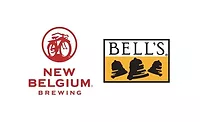New Belgium’s brewery-direct fleet goes hybrid
Craft brewer blends environmental stewardship with local distribution
After Colorado home brewer Jeff Lebesch returned from a trip across Europe on his “fat tire” mountain bike in 1989, he began brewing an amber beer called Fat Tire in the basement of his Fort Collins, Colo., home. The Belgian-inspired brew garnered enough praise from friends and neighbors that Jeff and his wife, Kim Jordan, made their basement brewery commercial in 1991, thereby forming New Belgium Brewing Co.
In 2012, New Belgium Brewing produced more than 23 million gallons of beer, which marked a 75 percent increase just in the last six years. The company has grown into the American craft brewing industry’s third largest craft brewer and became 100 percent employee-owned in 2013. In addition to its primary brewery and warehouse in Fort Collins, the company has plans to open a new facility in Asheville, N.C., in 2015.
A number of the company’s products are widely distributed in 28 states and Washington, D.C., and are transported primarily by for-hire carriers. However, New Belgium’s brewmasters still make small batches of specialized beers, which the company’s drivers deliver to stores, restaurants and bars in northern Colorado only.
When New Belgium was looking to replace some of the trucks in its local delivery fleet, the company knew it wanted units that could mirror the quality and uniqueness of its beer while also reflecting the company’s commitment to environmental stewardship. However, it also needed trucks with greater hauling capacity to accommodate the sales growth of its local delivery routes.
A group of New Belgium Brewing employees, including drivers and managers, considered several options and opted to lease diesel-electric hybrid Kenworth T370s under full-service leasing contracts with MHC Truck Leasing, a PacLease franchise in Denver. “We chose MHC Truck Leasing and PacLease because they offered us the hybrid trucks we wanted under a full-service lease when other leasing companies couldn’t,” says Christine Biegert, New Belgium’s fleet manager.
Ben Hockett, New Belgium’s warehouse and driver manager, adds: “We produce quality, award-winning craft beer that people know is unique and is made by an environmentally conscious brewer. We needed to live up to that image. The last thing we wanted was to use trucks that couldn’t reduce our carbon footprint and couldn’t offer us greater productivity.”
To serve the local market in Fort Collins and northern Colorado, New Belgium has a fleet of four delivery trucks and eight passenger vehicles, including two hybrid trucks, two Nissan Leaf EVs, and five Toyota Prius hybrids. Biegert says the move toward using no- to low-emission vehicles is part of the company’s environmental commitment.
Toward the end of its previous five-year lease, local deliveries became more difficult to manage because of the lack of payload capacity with the existing delivery trucks, Hockett says.
The company wanted to use a straight truck with more payload capacity but still negotiate deliveries on tight and crowded alleyways, streets and parking lots. For hauling larger bulk loads, the company wanted a tractor. For other routes, the company wanted a smaller straight truck. All three trucks were planned to be hybrids to reduce fuel consumption and emissions, but ultimately the configuration of the smaller straight truck precluded spec’ing the hybrid drivetrain on that unit.
New Belgium’s employee group worked closely with Doug Harris, a leasing account manager with MHC Truck Leasing in Denver, Hockett says. The group developed a wish list based on operational needs, driver experiences and a recognizable branding opportunity.
Harris worked with the company based on its needs as well as state and federal regulations, Hockett says. He then consulted with Kenworth and Eaton engineers to select a hybrid straight truck and a hybrid tractor to meet New Belgium’s operational needs. The hybrid straight truck features a 10-bay Hackney beverage body to accommodate the larger loads. The hybrid tractor, coupled with a 28-foot trailer equipped with a lift gate, hauls bulk loads on pallets that are distributed to larger stores. The company also leased a third truck, a non-hybrid Kenworth T370 with a six-bay Hackney beverage body.
“Our drivers are really impressed with the look and feel of the trucks,” Hockett says. “They’re happy with the torque and power these trucks offer, and we’re definitely getting better fuel economy than we would with comparably equipped diesel-powered trucks.”
As a large craft brewer running a small delivery fleet to serve retailers in its home market, leasing the trucks was the best option for New Belgium, Biegert explains.
“We don’t want to own the trucks — when the lease term is done, we just want them to go away,” she says. “It makes sense from a cash-flow perspective as well. There is no reason to tie up that cash all at once. These trucks are operational expenses; they are not assets.”
The cost-certainty of leasing is especially important when choosing newer technology like hybrid drivetrains. “The hybrids are going to be so much better in five years than they are now, so we don’t want to be trying to sell a used vehicle at the end of term,” Biegert says. “So the lease schedule that PacLease worked out just made sense from all sides.”
Biegert adds that the full-service lease allows New Belgium not to worry about truck maintenance. The local support New Belgium gets from MHC Truck Leasing in Denver helps keep the fleet running and local customers stocked, she notes.
Looking for a reprint of this article?
From high-res PDFs to custom plaques, order your copy today!




